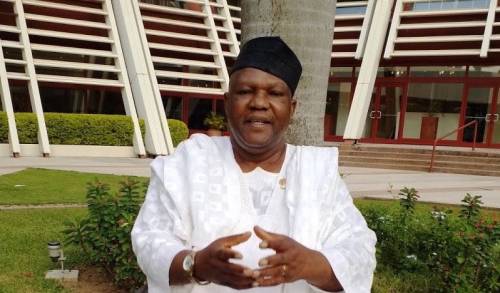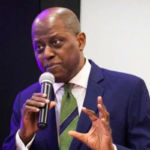I lost a good friend, Dr Obadiah (Obed) Mailafia on Sunday at the young age of 64 years, apparently, from the COVID-19 pandemic. Yes, another casualty in the long list of distinguished Nigerians lost to this dreaded disease. As I always say to all my friends and relations, take your vaccination, follow the prescribed protocols and pray.
I knew Obed from our student days at Ahmadu Bello University (ABU), he was just a year behind me in the university and I knew him from his first year – 1975-1976. He was a very cultured human being, very well-read. I was always astonished at the vast number of books he has read and continued to read from when I knew him to the end. He was a very polite, kind and gentle soul. Although we were friends for over four decades, we never really agreed on anything and our friendship was based on disputations – philosophical, ideological and historical. We always agreed to disagree.
- UN Assembly: No going back on mega protest — Yoruba Nation, others
- 90,000 Anambra children out of school
It all started in the 1975-76 session when my Marxist-Leninist Study Group identified him as excellent material for a revolutionary cadre. Dear reader, at that time, everybody in ABU, or at least in our Faculty of Arts and Social Sciences was a Marxist, or at least pretended to be one. We were aware at that time that Obed was already reading Marxist literature so I engaged him with confidence to join. He rejected the idea of becoming a Marxist outright and provided his reasons. Marxists, he argued, were materialists who were cocooned in a monocausal vision of history while he was a humanist with a multi-causal vision that respected not just material conditions but also spiritual, cultural and other dimensions of existence and change.
Secondly, he accused us of being intellectually one-sided in our approach because we focused too much, he thought, on Marxist texts and not the writings of dissidents who had lived in the Soviet Union and knew what really existing socialism was in practice. He had for example read the works of Aleksandr Solzhenitsyn who was one of the greatest critics of Soviet Socialism and devoted his life in exile to criticizing communism. I respected his vision and although he rejected the invitation to become a Marxist, we remained friends.
On graduation, we both joined the staff of the Political Science Department as graduate assistants, did our master’s degree and both of us had our French sojourn at the International Institute of Public Administration, a fancy new name for the old “Ecole Coloniale”, established in 1900 to train colonial officers. Subsequently, it was converted to an institution to train officials from former colonies. The French Government later took the decision to take in Anglophones and gave scholarships to Ahmadu Bello University, also to the universities in Ife and Nsukka, to go there. I was in the 1084-85 set while Obed was in 1985-86 set. We learnt to speak French, appreciate cheese and red wine and read French philosophers in addition to learning international diplomacy and international relations. At that point, Obed moved from Ahmadu Bello University to the National Institute for Policy and Strategic Studies, becoming one of Nigeria’s leading experts in strategic studies while I returned to my post in Zaria.
In mid-career, we both decided to go out again and do our doctoral studies, I returned to France while Obed went to Oxford. He decided to divert from strategic studies to business and finance, a move that surprised me. I told him he was too smart and well-read to engage in such a pedestrian path based on pushing people towards the profit motive but he defended his choice making the argument that business and finance could be as exciting as strategic studies. He felt that those of us from the socialist tradition were too focused on poverty alleviation strategies and by so doing we box ourselves into meagre reduction of poverty for the masses who never get to move out of poverty. His own vision, he declared grandiosely, was extending the frontiers of wealth creation to the people. I asked him to look at Nigeria’s Gini coefficient which clearly shows the widening gap between the poor and the wealthy. He agreed, arguing that he left the academy and went into banking, first the African Development Bank, and later the Central Bank of Nigeria, precisely to help create the conditions to opening doors for more people to join the path to wealth creation.
He was initially reluctant to accept the offer to be Deputy Governor of the Central Bank of Nigeria thinking his ambition should be more Pan-African but he later took the decision that Nigeria is so important to Africa that helping push the Nigerian needle forward is in itself a fillip to African development. In the CBN, he was deeply engaged in the dept part-repayment and part-forgiveness from the Paris Club process, arguing it would free resources that could be used to place Nigeria on the path to people-centred development. Then suddenly, in a three-hour saga, President Olusegun Obasanjo and Charles Soludo conspired to bundle him out of the CBN. It was a huge blow to him, not because he needed the job, but because he felt that the opportunity to contribute to national development was cut in an unfair way and in a context where he had done no wrong. He did try to go back to the job for some time but it did not happen. It was at that point that he began to believe in some conspiracy theories.
That brings me to the third set of disputations we had. In the last phase of his life, he became an ardent advocate of the conspiracy theory about the Fulani seeking to colonise Nigeria and engage in Jihad against the Christian community. This is a very emotive and raw issue and it is too early to go into the details. Suffice it to say that over the past decade, we had many arguments and as is usual in our relations, completely disagreed on the fundamentals. What I would say with certainty is that Obed genuinely believed in what he was saying and was not playing to the gallery or playing politics, with such serious matters. The gentleman that he is would never allow him to say what he did not believe him. I have lost a great friend and confidant. I feel the pain of his lovely wife, Margaret, who hosted my family and I so many times over the years and the children. May his soul rest in perfect peace and may his life work be a blessing to all of us.

 Join Daily Trust WhatsApp Community For Quick Access To News and Happenings Around You.
Join Daily Trust WhatsApp Community For Quick Access To News and Happenings Around You.

